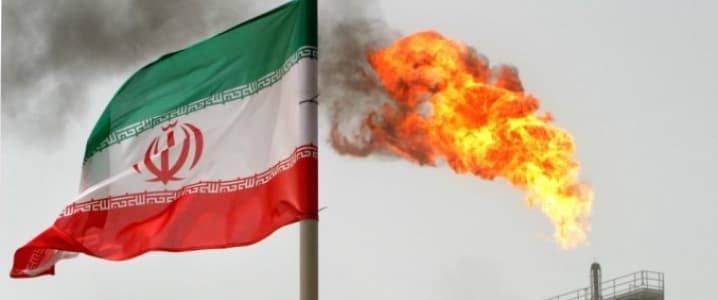Just when big oil was preparing to sign the new Iranian Petroleum Contracts and start working the country’s vast fields, hardliners once again took the upper hand.
On Monday, the new head of the National Iranian Oil Company announced that the old buyback contracts that the country used before the sanction era will stage a comeback as an alternative to the new IPC.
The announcement signals that political hardliners, who objected to the introduction of the new IPC as a more attractive alternative to the buyback contracts are increasing the pressure on the reformist camp. Thanks to precisely this pressure, the official presentation of the IPC was delayed several times, but Oil Minister Bijan Zanganeh managed to push forward with it. Most recently, Zanganeh said the first tenders for the development of some 15 fields could be launched as early as this month.
The old buyback contracts pushed away foreign oil companies, notably Italy’s Eni and France’s Total, who said that under those conditions, they were finding it hard—sometimes impossible—to break even on their Iranian operations. Those contracts stipulated that Iran will pay a fee to oil companies developing its fields, but did not allow them to book reserves at the fields or buy into local oil companies.
The new IPC, on the other hand, includes stipulations for foreign oilfield operators to book oil reserves, as well as an option for long-term engagements and alternative ways of compensation. The aim, Zanganeh said, was to achieve a win-win for Iran and the foreign operators.
Opposition was strong from the beginning, but lately it looked like it has started to subside, as the IPC was amended repeatedly to accommodate the biggest concerns of the opponents. Just last week Zanganeh announced the final (maybe) amendment of the IPC, adding that it should be approved by the government “shortly.” He mentioned at the time that foreign oil companies will be given a choice between the IPC and the old buyback scheme, and now his trusted ally Ali Kardor has seconded that. Related: Fresh Niger Delta Attacks Could Send Oil Prices Up
If they have a choice, however, it’s pretty certain that foreign oil operators will choose the new contract. Reuters quoted Kardor as saying that “Joint fields will be offered using the new type of contracts, while Iranian companies will be entrusted with developing a number of fields,” suggesting that the buyback option could be picked by the local oil companies.
The opposition to the IPC is seen by some as a special case of a wider conservative opposition to reformist president Hassan Rouhani. Presidential elections will be held next year, and the hardliners around Supreme Leader Ali Al Khamenei have made it pretty clear that they don’t want Rouhani to win another term.
In the end, the conflict is between the hardliners and the reformists, and the energy front is the biggest, most visible one. The former are worried about any possibility of foreign interest encroaching on Iran’s natural resources, and the latter are perfectly clear that the country’s oil industry has little chance of moving ahead without foreign help. Which camp will prevail remains to be seen, and we won’t have to wait too long.
By Irina Slav for Oilprice.com
ADVERTISEMENT
More Top Reads From Oilprice.com:
- Gas Pump Skimming At New Records This Holiday Weekend
- New Niger Delta Attack Claims Two Lives
- Consolidation In Libyan Oil – A Major Red Flag For Oil Markets?

















